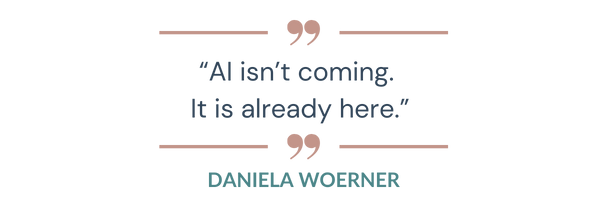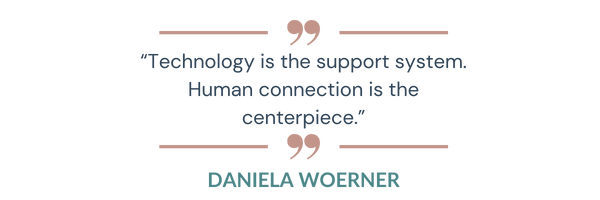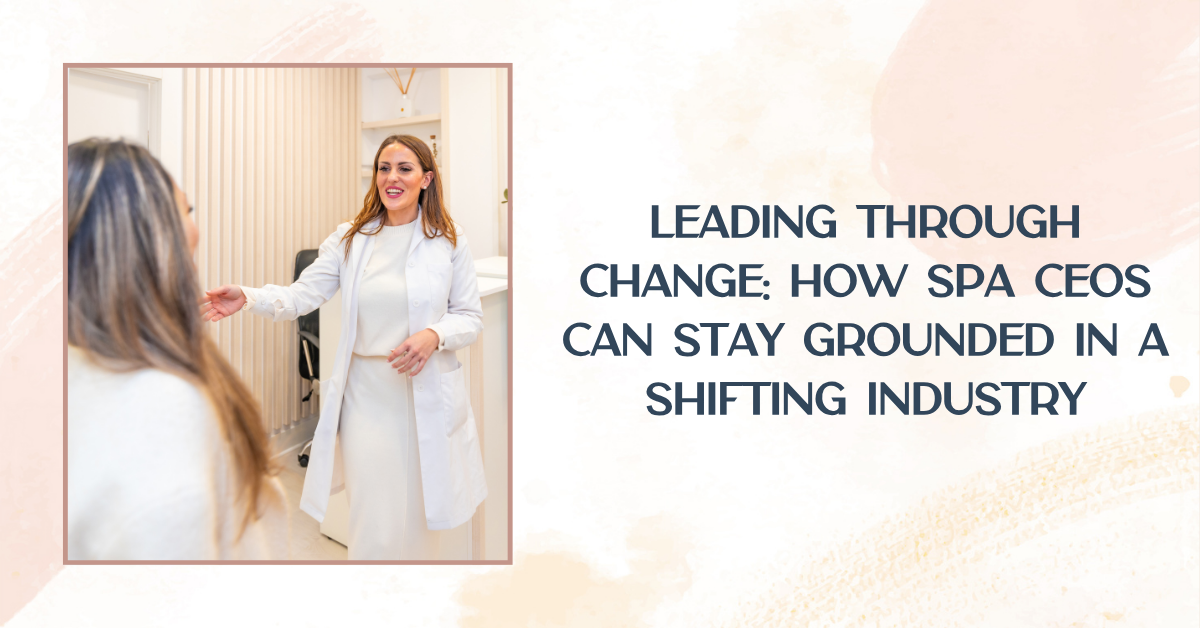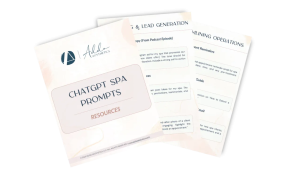
If your spa is still serving clients and keeping the lights on, pause and recognize what that means. The last five years have been marked by shutdowns, inflation, supply chain disruptions, labor shortages, strikes, and broader economic uncertainty. You navigated crisis after crisis, and you’re still here. That resilience is not trivial. It’s your leadership foundation.
But what’s arriving now is different. AI isn’t a one-off tactic. It’s a transformation in how life and business operate. Spas that don’t adapt risk becoming irrelevant, while those that lean in can remain sustainable and profitable.
Your role as a Spa CEO is to lead through that reality by opening the conversation, reducing uncertainty, and guiding the team forward with clarity and care.
AI is already affecting client expectations and back-end systems: automated booking, AI skincare diagnostics, and virtual reception are no longer abstract concepts. Your team may feel confused (“Is this replacing me?”), anxious (“Will I lose hours?”), or dismissive (“This won’t affect spa”). Don’t leave those feelings to fester. Bring them into the open. Hold a team meeting, bring examples, and invite real questions. That’s how you trade anxiety for information and a plan.

Where AI can help (so humans can shine)
- Answer routine FAQs so your front desk can focus on guests.
- Track inventory to eliminate manual busywork.
- Automate rebooking and reminders to free time for more personalized service.
The principle is simple: AI won’t replace people, but it will replace tasks. This will free your team to do what only humans can do: build relationships, deliver care, and create results.
When the landscape shifts quickly, mindset becomes your moat. Adopt the stance that your spa is a learning organization. You try new tools as experiments, learn out loud, and iterate together.
Practically, that looks like this:
- Run small pilots. Test a front desk app or a personalized follow-up messaging tool for a limited period with clear success criteria.
- Assign an “AI scout.” Ask a team member to explore updates, collect feedback, and share learnings at team meetings.
- Reward curiosity. Normalize good questions and ideas; make innovation safe and visible.
When teams see that change equals growth, not punishment, they lean in, ask smarter questions, and help you find better fits between technology and service.

AI can drive efficiency, but it can’t replicate the human elements clients remember. Invest in training and coaching around:
- Clear communication that builds trust at every touchpoint.
- Client and patient education that elevates a service into a guided experience.
- Consultation mastery from listening to tailored recommendations.
- Personalized service and care that make guests feel seen and supported.
- Emotional intelligence: presence, empathy, and attunement under pressure.
Yes, teach your team to work with AI tools—without fear—but remember: AI makes things efficient, your people make them meaningful.

Use AI to respond faster, stay organized, and personalize follow-up, but don’t let it erode what makes your spa special. Technology supports the experience, while human connection is the centerpiece. Hold that line, and your tool, training, and policy decisions become much clearer.
You don’t need to become an AI expert. You do need to be an adaptable leader: curious, transparent, and steady. The future favors spa owners who evolve out of vision, not fear, drawing strength from the resilience proven over the last five years and bringing the team with them.
Make change concrete with a simple, collaborative meeting.
Here’s a ready-to-use outline:
1. Set the frame (10 minutes).
Acknowledge how much your team has navigated in recent years and explain why you’re discussing AI now: it’s already impacting client expectations and systems, and your goal is to support the team through change, not replace them.
2. Show a few examples (10 minutes).
Talk through automated booking, AI skincare diagnostics, virtual reception, and automated reminders/rebooking, briefly describing how each reduces friction.
3. Open the floor (10 minutes).
Invite questions and concerns. Reiterate the principle: AI replaces tasks, not people.
4. Select one pilot (15 minutes).
Pick a single tool to test, like a front desk app or a personalized follow-up messaging software. Assign an AI scout to lead the pilot, gather feedback, and present learnings.
5. Refocus on human skills (10 minutes).
Choose one competency to level up this month (communication, education, consultation, or EI) and name where it shows up in the client journey.
6. Close with confidence (5 minutes).
Reinforce your north star: technology supports; human connection leads. Outline next steps and how you’ll measure the pilot.
After the meeting, capture what you chose to pilot, the top team’s questions, and how you felt leading from the front. (And yes, there’s an open invitation to share how it went.)

When a team member worries about job security:
“AI isn’t here to replace you—it’s here to handle routine tasks so you can focus on clients and outcomes.”
When you introduce a new tool:
“We’re treating this as a test. We’ll try it, measure it, and decide together if it helps us deliver better care.”
When you feel pressured to ‘know it all’:
“I don’t need to be an AI expert to lead well. My job is to stay curious, be transparent, and make steady choices.”
When you sense the brand’s warmth slipping:
“Let’s realign. Technology supports our service, but human connection stays at the heart of every visit.”
You’ve already proven you can lead through uncertainty. Now lead through transformation, calmly and clearly.
- Treat AI as a support system that removes friction.
- Elevate the irreplaceable human skills that define your brand.
- Build a learning culture that tries, measures, and iterates.
- Keep technology in its lane and human connection at the center.
That’s how Spa CEOs stay grounded—and grow—even as the industry shifts around them.

Subscribe to Our Newsletter
Stay up-to-date with our email newsletter to receive important updates, news, and offers!

About the Author
Daniela Woerner is the founder of Addo Aesthetics and creator of the Growth Factor® Framework, a proven system that’s helped hundreds of spa owners build profitable, systemized businesses. With nearly 20 years in the aesthetics industry, she transforms overworked service providers into confident Spa CEOs through strategy, systems, and soul-led support. Daniela is also the host of Spa Marketing Made Easy, a top-ranked podcast with over 1 million downloads, where she shares real-world strategies to help spa professionals grow with clarity and confidence.


